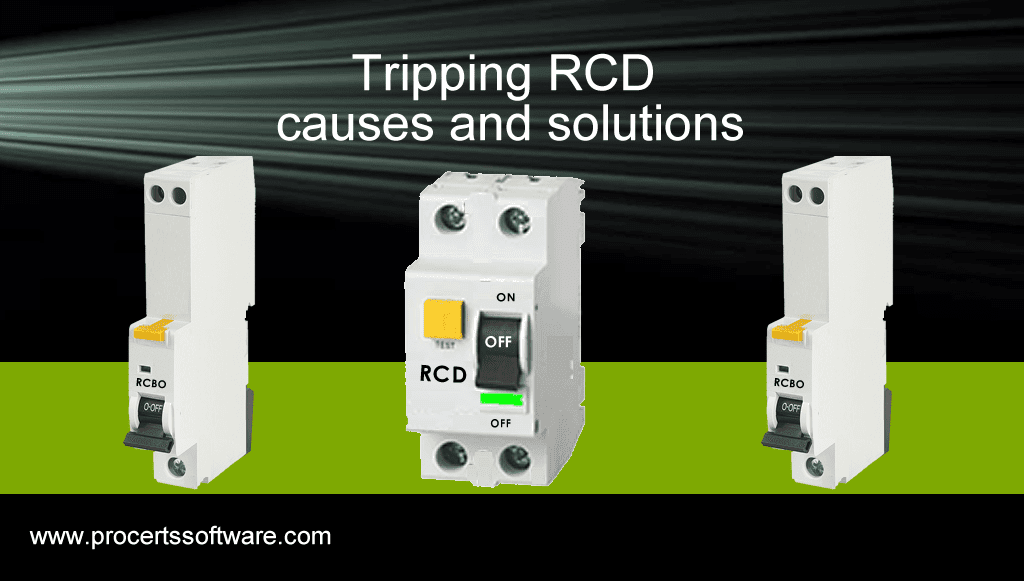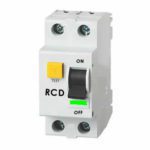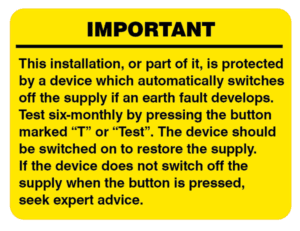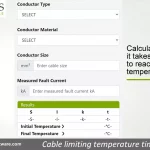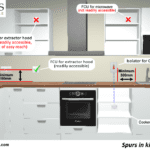Why does an RCD trip
An RCD will trip when an electrical fault is detected, the fault could be in the form of a faulty appliance, damaged cable, wiring fault or some thing else. RCD’s are sensitive safety devices which must NEVER be bypassed, if an RCD trips it is carrying out the function it is designed to do in the event of a fault to reduce the risk of fire, electric shock, serious injury or even death to persons, livestock or property.
A tripping RCD should never be ignored, RCD’s do not trip for no reason and could indicate a serious issue which needs urgent attention.
Intermittent Tripping RCD
An RCD which trips intermittently can be a difficult fault to diagnose and can be very time consuming to locate the cause(s) and it may take multiple fault finding sessions at varying times of the day over a number of days to catch the fault at a time when the RCD is actually tripping.
If at the time of carrying out the investigation and fault finding works the RCD is operating normally then it is unlikely the fault will be found at that time hence further investigation maybe required.
RCD trips at the same time every day
If an RCD trips at the same time every day this is a good indication of a faulty appliance or connected electrical equipment that is programmed to switch on at the same time each day, such as the central heating, an immersion heater or timed lighting.
Random RCD Tripping
An RCD that trips every 5 / 10 minutes or every so many hours can be an indication of damaged wiring caused by rodents such as rats or squirrels. If rodents have damaged any electrical wiring the damaged wiring will require replacing, it is worth noting that the rodents point of entry should be identified and rectified to prevent the rodent from damaging the new wiring.
Depending on the type of the installation the electrical system may require a complete overhaul if the current type of wiring and installation methods adopted are not suitable for the type and nature of the installation.
Electrical cables damaged by rodents is a serious immediate fire risk, if you find or suspect any electrical cables damaged by rodents isolate the electrical supply immediately and contact an Electrician.
Identifying RCD Fault
An RCD within a consumer unit may cover a bank of circuits (more than one), in this case we need to identify which circuit is causing the RCD to trip.
To identify which circuit is at fault first turn off the RCD and all associated MCB’s (miniature circuit breakers), next turn on the RCD and assuming the RCD stays on then one by one turn back on each MCB in turn.
The RCD is likely to trip at the point when you turn on the faulty circuit, at that point repeat the above process but this time leave the MCB which caused the RCD to trip switched off, the reason for this is because there might be another fault on another circuit.
Once you have identified the faulty circuits move to step 1 “Faulty Appliance” below.
Possible Causes of RCD Tripping
As mentioned above there are multiple possible causes of RCD’s tripping, here we look at a number of the most common.
1) Faulty Appliance
The first thing to check when an RCD keeps tripping are the appliances and connected electrical equipment. Unplug every plug, switch off every isolator and turn off every switched fused spur, in some cases you may also need to turn of every light switch and extractor fan isolator, remember to check the immersion heater, central heating and switched fused spurs in the kitchen are all switched off.
Once you are certain every appliance is unplugged and all isolators are in the off position try to reset the RCD.
– RCD now stays on:
> Should the RCD reset and holds after a period of time it is likely that one of the pieces of electrical equipment was at fault.
– RCD still trips:
> Further investigation is required.
2) Wiring Fault
A wiring fault could be a damaged cable, loose connection or an incorrectly connected or wired electrical accessory.
To identify a circuit fault a series of electrical testing will be required, one of these tests would be an insulation resistance test, this test is best carried out with the electrical circuit completely disconnected from the consumer unit / distribution board with all appliances and electrical equipment switched off.
If the circuit is a ring main circuit an r1+r1, r2+r2 and rn+rn test should also be carried out, see the IET Guidance Note 3 for information on testing procedures, ensure this is the latest current version.
3) Excessive Earth Leakage
Most commonly installed RCD’s are generally rated at 30mA, this means that should a circuit earth leakage current reach the threshold of the RCD the RCD will likely trip, the exact mA that causes a 30mA RCD to trip may vary from manufacture to manufacture.
Electronic equipment such as computers or certain power supplies may have a small amount of earth leakage current by design, which on it’s own is not normally an issue, however if a lot of electronic equipment is covered by the same RCD then the cumulative earth leakage of all of the equipment or appliances added together may exceed the threshold of the RCD.
If excessive earth leakage current is caused by having too many appliances or electrical equipment covered by a single RCD or RCBO then additional circuits might be needed to shed some of the load to separate RCD’s, there are multiple solutions for excessive earth leakage current which would be worth considering.
4) Faulty RCD
A faulty RCD can be the cause of an RCD tripping, however this is generally the least likely cause. If an electrician has deemed an RCD to be faulty then in most cases the RCD can be replaced. In older consumer units or fuse boxes the correct RCD may be obsolete therefore may require a complete consumer unit replacement.
Electrics Tripped
If you find your electrics tripped this is likely an indication of an electrical fault or a faulty appliance, circuits do not trip for no reason, there is always a cause, this cause must be rectified.
Possible causes for tripped electrics could be anything from a wiring fault, rodent damaged cables, water ingress, faulty appliance etc.. which may have caused the electrics to trip out.
Halogen / Filament Lamps, old fashioned filament and halogen type lamps have been known to cause the lights to trip out when the lamp reaches the end of its serviceable life (blown light bulb).
Power Cut, another possible reason your electrics “appear” to have tripped out could be a local power cut, check with your neighbours to see if they have any power or not, are the street lights also out, if so this could indicate a local power cut, if in doubt call 105 to contact your local electricity distributor.
For further information regarding a Power Cut or power outage see > Power Cut in my Area.
Fuse Box Tripped
See above “Electrics Tripped” as this is very similar to Fuse Box tripped.
Pre-payment meter, if you have a prepaid credit meter has the credit run out, this is another possible scenario why you may not have any power.
Seek expert advise if your electrics tripped, do not attempt to fix it yourself as this could make the situation worse or even dangerous.
Power Tripping
If your power keeps tripping seek expert advice from an Electrician, DO NOT keep resetting the RCD or MCB multiple times as this can cause further damage.
If all of your MCB’s and RCD’s / RCBO’s are in the ON position but you still do not have any power then the source of the issue could be external to your installation or property, in that case contact your local electricity distributor.
RCD Protection
BS 7671 requires many circuits to employ suitable RCD protection. A common mistake with RCD protection is selecting the wrong RCD type or rating, RCD protection devices are available in a variety of specifications and ratings to cater for varying requirements.
The selection of the correct RCD is essential to ensure its intended use and compliance with the regulations is met. Its not just a case of “RCD it”, it needs to be the correct RCD.
Choosing and installing the wrong type of RCD protection will not offer the level of protection you need therefore possibly not actually offering any protection at all.

